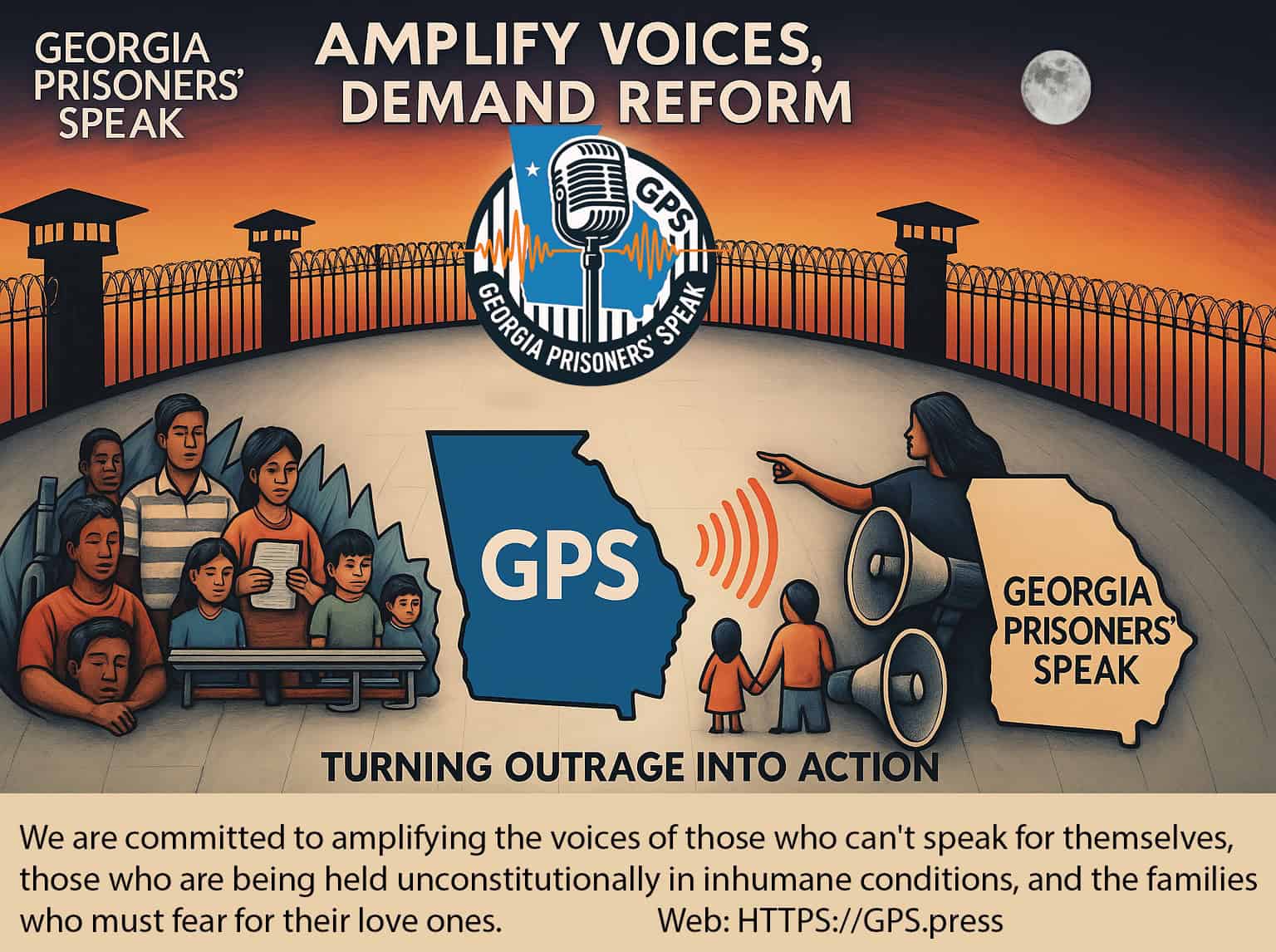Contraband funds Georgia’s prison gangs. Gangs control the violence. Georgia refuses to stop either. In 2024, over 100 homicides occurred in Georgia prisons—many driven by gang conflicts over drugs, phones, and weapons that should never enter secured facilities. Staff shortages create security gaps. Corrupt officers fill them with smuggled goods. The result: a death rate 32 times higher than the free population. 1
The Contraband Economy
Inside Georgia’s prisons, contraband operates as currency. Gangs control the supply. Control of contraband means control of power. GPS has documented how this black-market economy drives violence:
- Cell phones — Enable coordination of crimes inside and outside prison
- Drugs — Create addiction, debt, and deadly conflicts
- Weapons — Make gang enforcement lethal
- Money — Flows through commissary accounts and outside channels
When gangs fight over territory, people die. The 100+ homicides in 2024 weren’t random—they followed predictable patterns of gang competition for contraband control.
How Contraband Gets In
The Department of Justice investigation identified staff involvement as a primary vector for contraband entry. With vacancy rates exceeding 49% at some facilities, the system creates incentives for corruption:
- Low pay — Officers earn less than comparable jobs; smuggling supplements income
- Minimal oversight — Understaffing means fewer people watching the watchers
- Gang pressure — Staff face threats from organized gangs who control entire housing units
- Inadequate screening — Entry points lack modern detection equipment
45 Georgia prison guards were indicted in recent contraband cases. For every guard caught, more continue operating. 2
The Violence That Follows
GPS has documented 1,682 deaths in Georgia custody since 2020. Many trace directly to contraband-driven gang violence:
- Drug debts — Unpaid debts result in beatings or killings
- Territory disputes — Gangs fight for control of housing units where they can operate
- Enforcement violence — Gangs maintain control through visible brutality
- Retaliatory killings — Each death triggers cycles of revenge
The state knows the patterns. It tracks gang affiliations. It could separate rival gangs and disrupt networks. It refuses. 3
What Would Work
Other states have reduced contraband and gang violence through measures Georgia refuses to implement:
- Full-body scanners — At all entry points for staff and visitors
- Competitive pay — Reduce incentives for corruption
- Independent oversight — External monitoring of staff conduct
- Gang separation — House rival gangs separately to prevent conflicts
- Cell phone detection — Technology exists to locate unauthorized devices
These solutions cost less than managing constant violence. Georgia chooses not to implement them.
Take Action
Use Impact Justice AI to send advocacy emails demanding contraband interdiction and staff accountability. The free tool crafts personalized messages to Georgia lawmakers—no experience required.
Demand:
- Body scanners at all facility entry points
- Competitive officer pay to reduce corruption incentives
- Independent oversight of staff conduct
- Gang separation policies to reduce violence
Further Reading
- Forced Criminality: Inside Georgia’s Prison Violence Factory
- $700 Million More—And Nothing to Show for It
- GPS Informational Resources
- Pathways to Success
About Georgia Prisoners’ Speak (GPS)
Georgia Prisoners’ Speak (GPS) is a nonprofit investigative newsroom built in partnership with incarcerated reporters, families, advocates, and data analysts. Operating independently from the Georgia Department of Corrections, GPS documents the truth the state refuses to acknowledge: extreme violence, fatal medical neglect, gang-controlled dorms, collapsed staffing, fraudulent reporting practices, and unconstitutional conditions across Georgia’s prisons.
Through confidential reporting channels, secure communication, evidence verification, public-records requests, legislative research, and professional investigative standards, GPS provides the transparency the system lacks. Our mission is to expose abuses, protect incarcerated people, support families, and push Georgia toward meaningful reform based on human rights, evidence, and public accountability.
Every article is part of a larger fight — to end the silence, reveal the truth, and demand justice.

